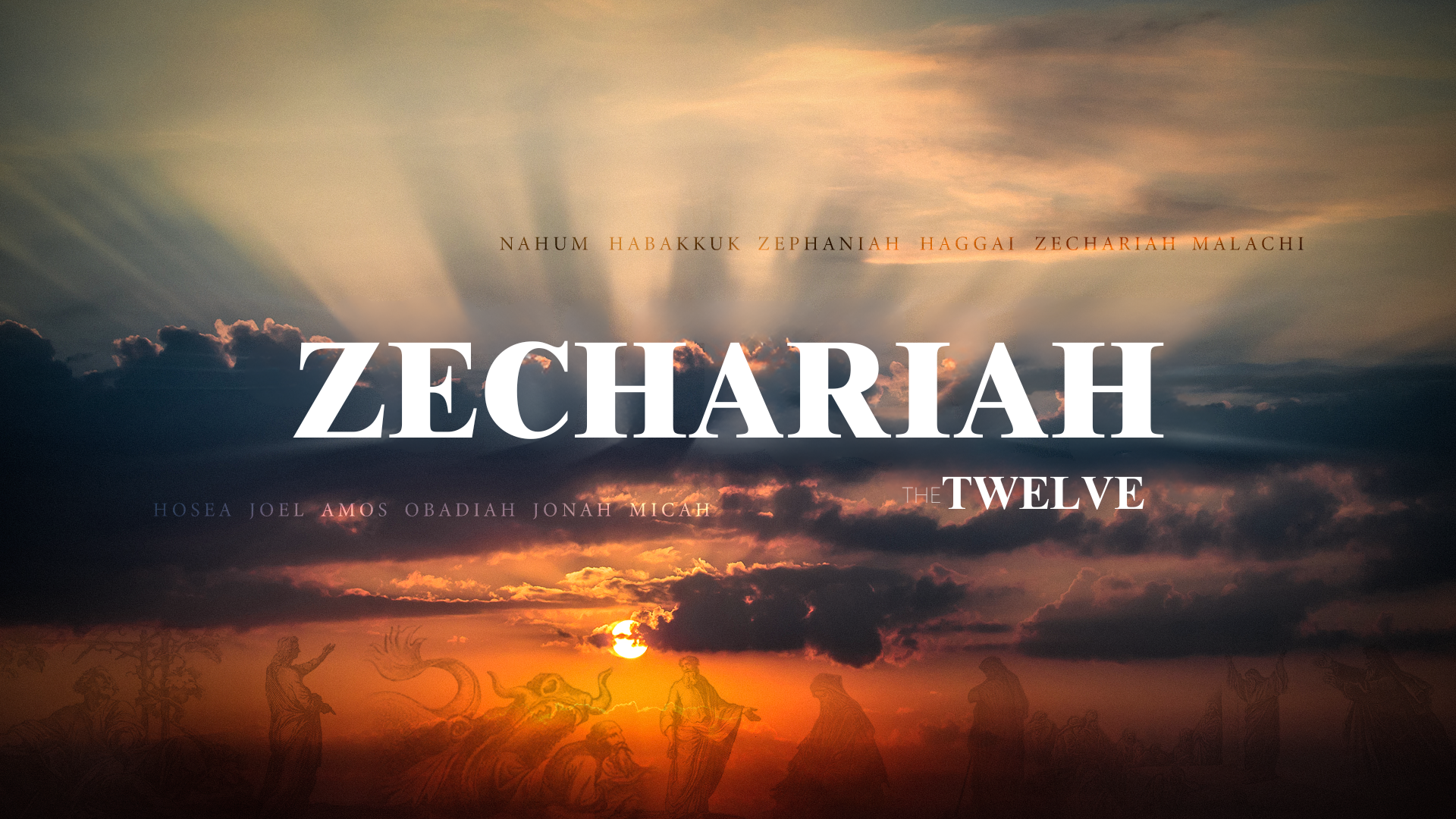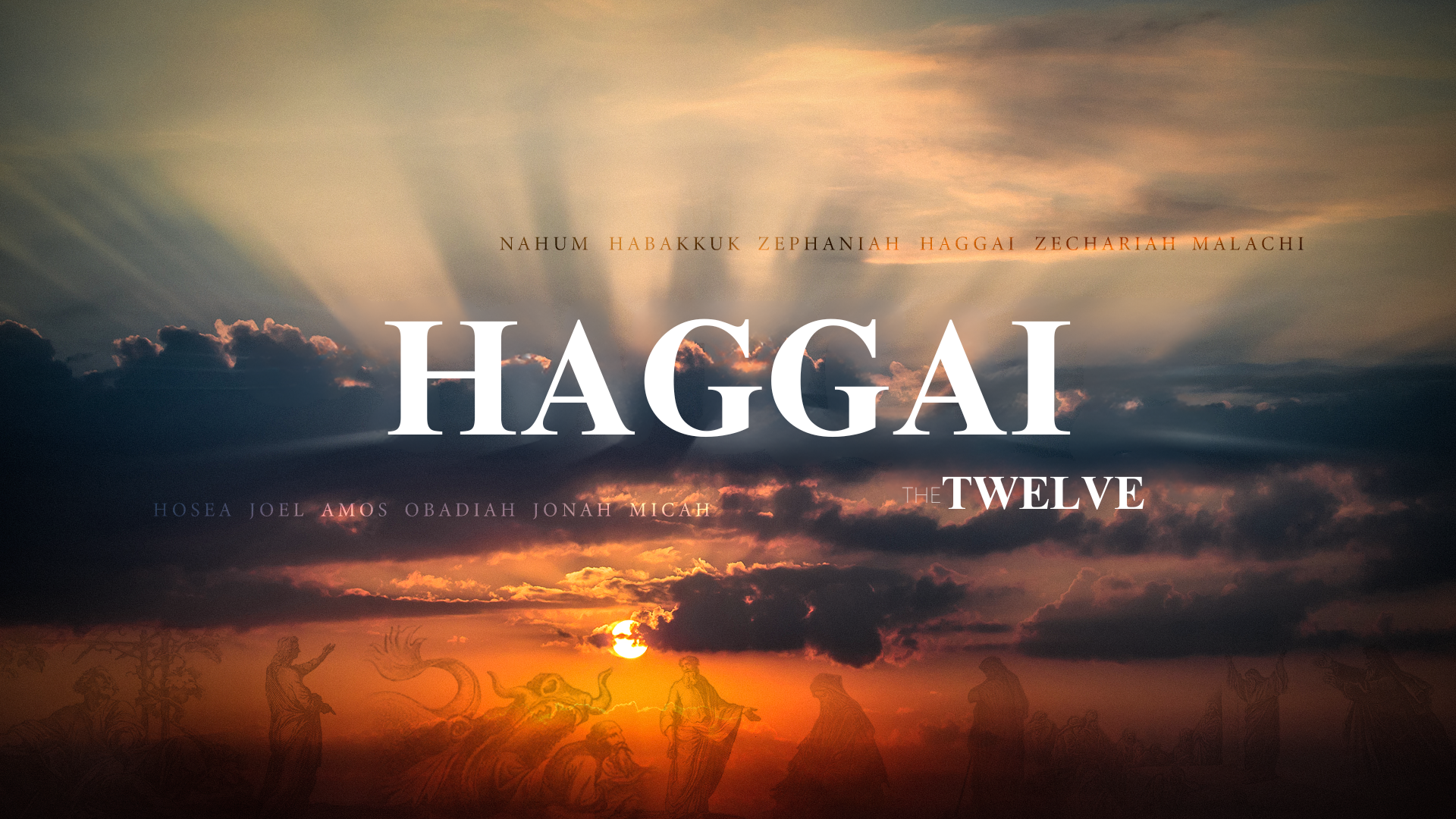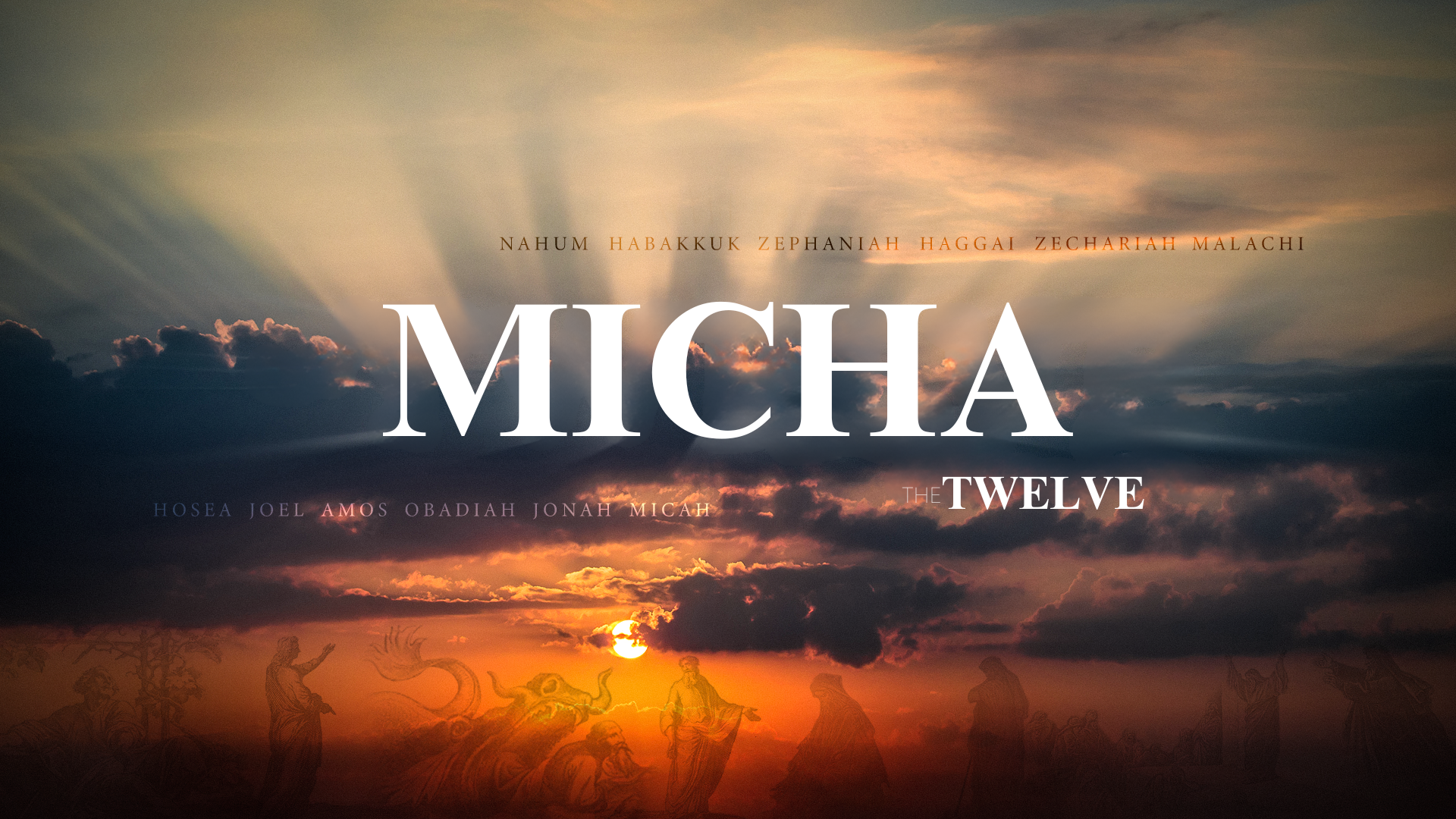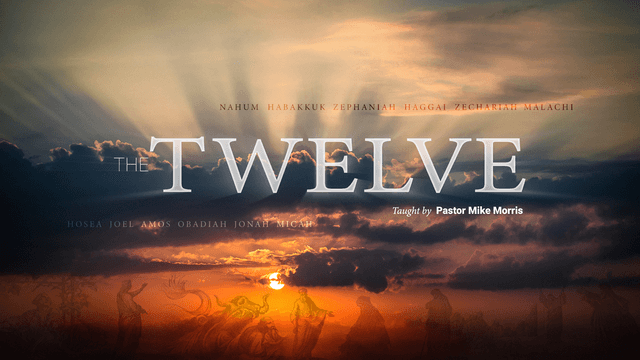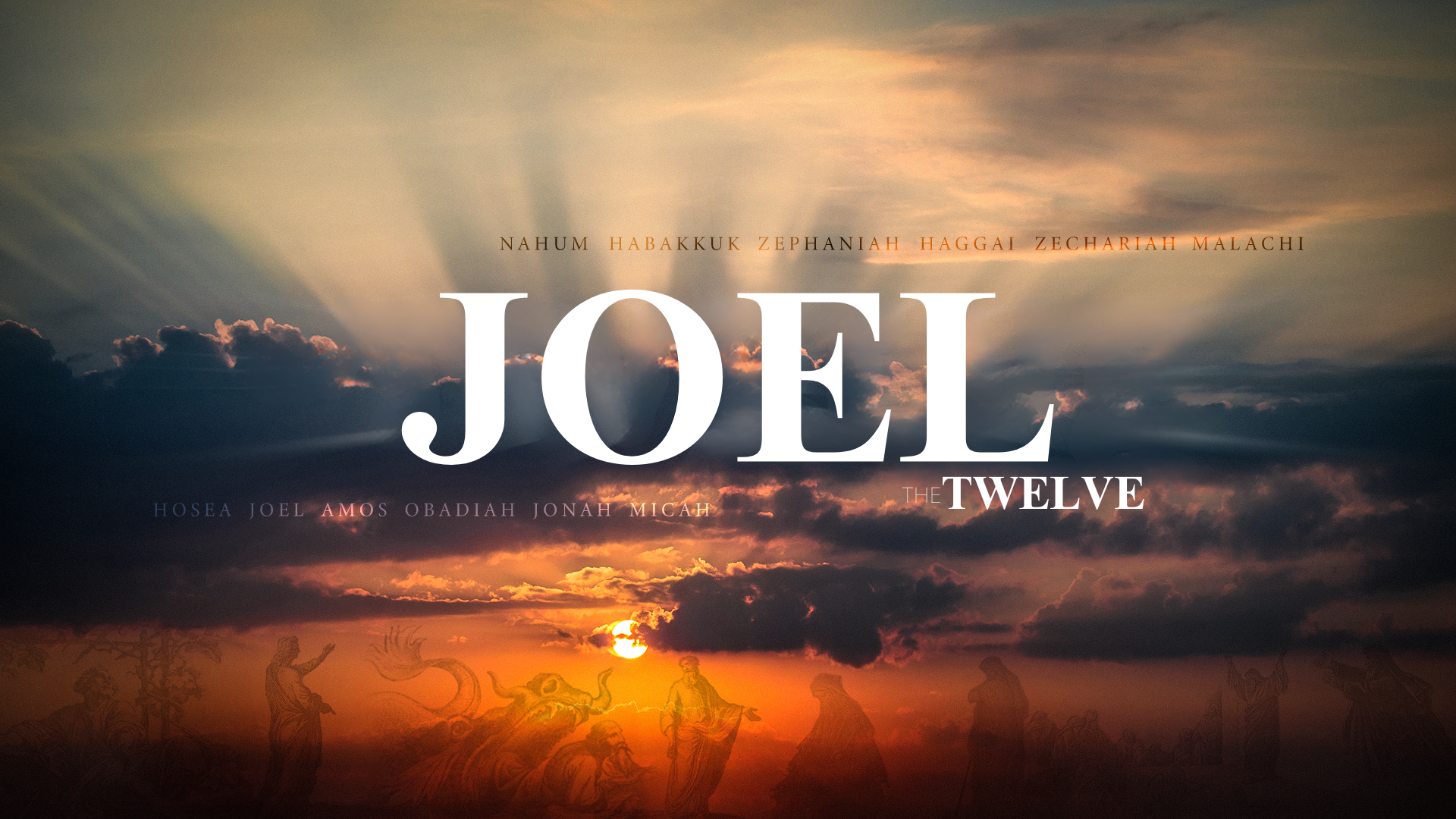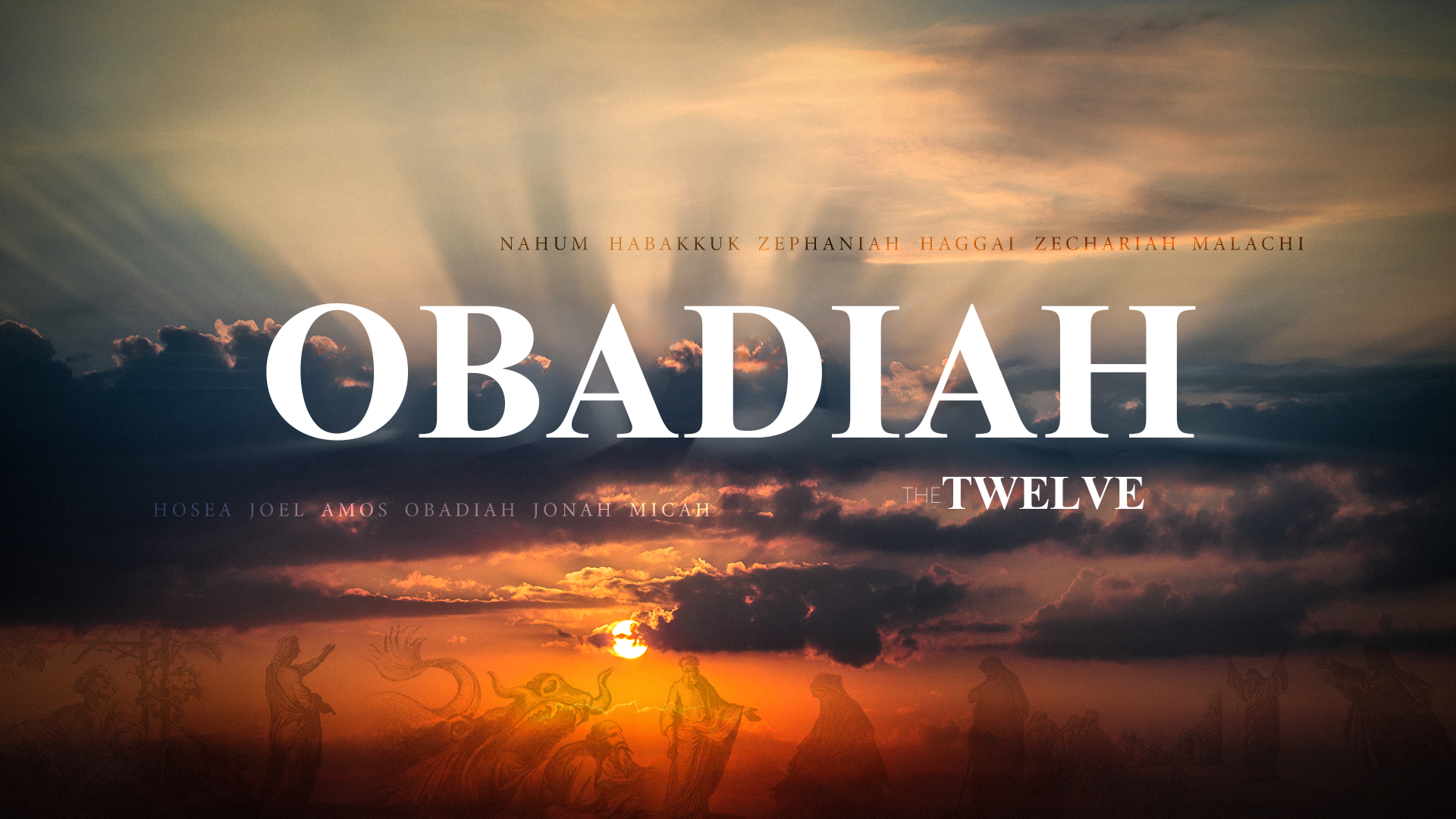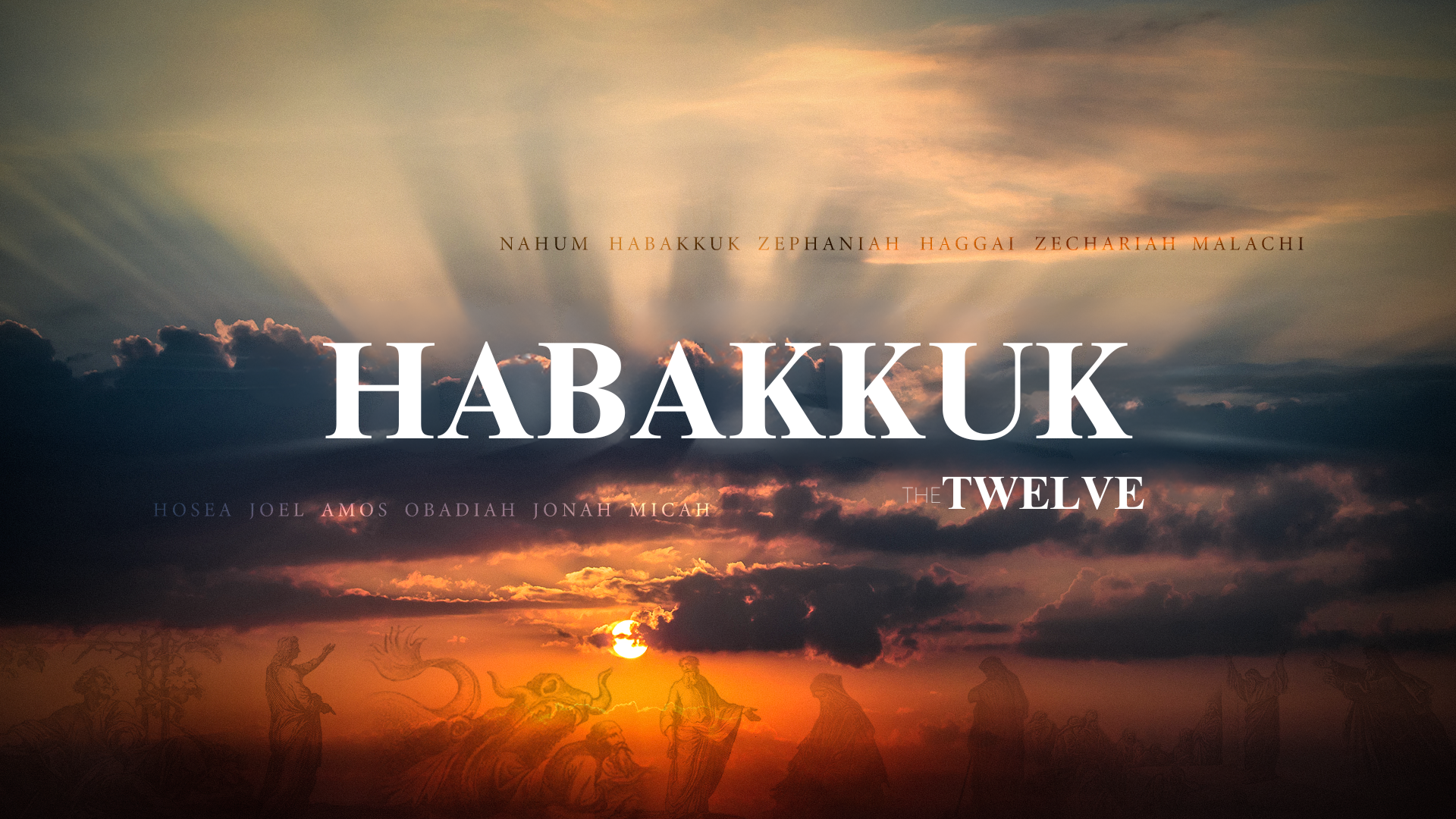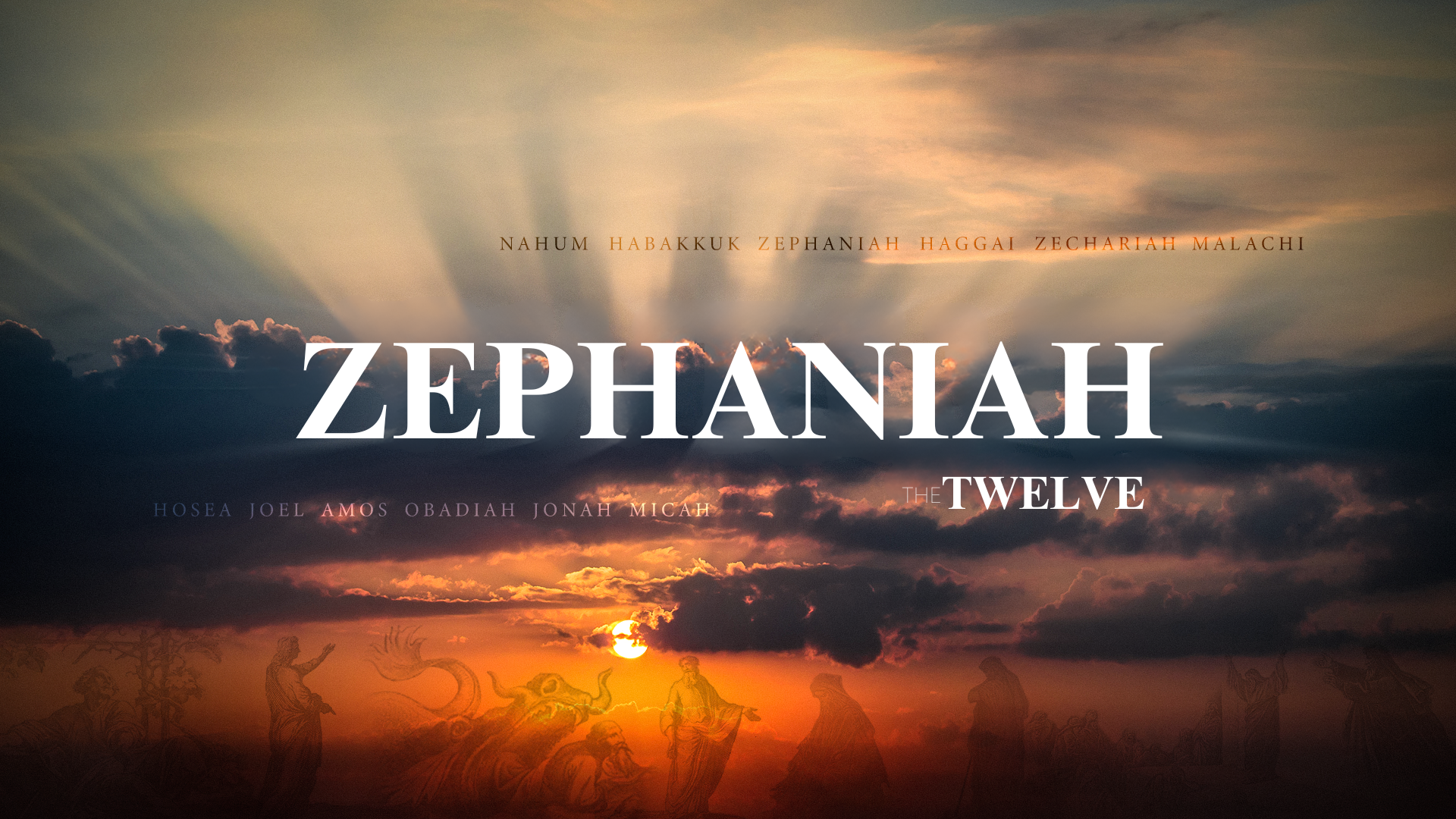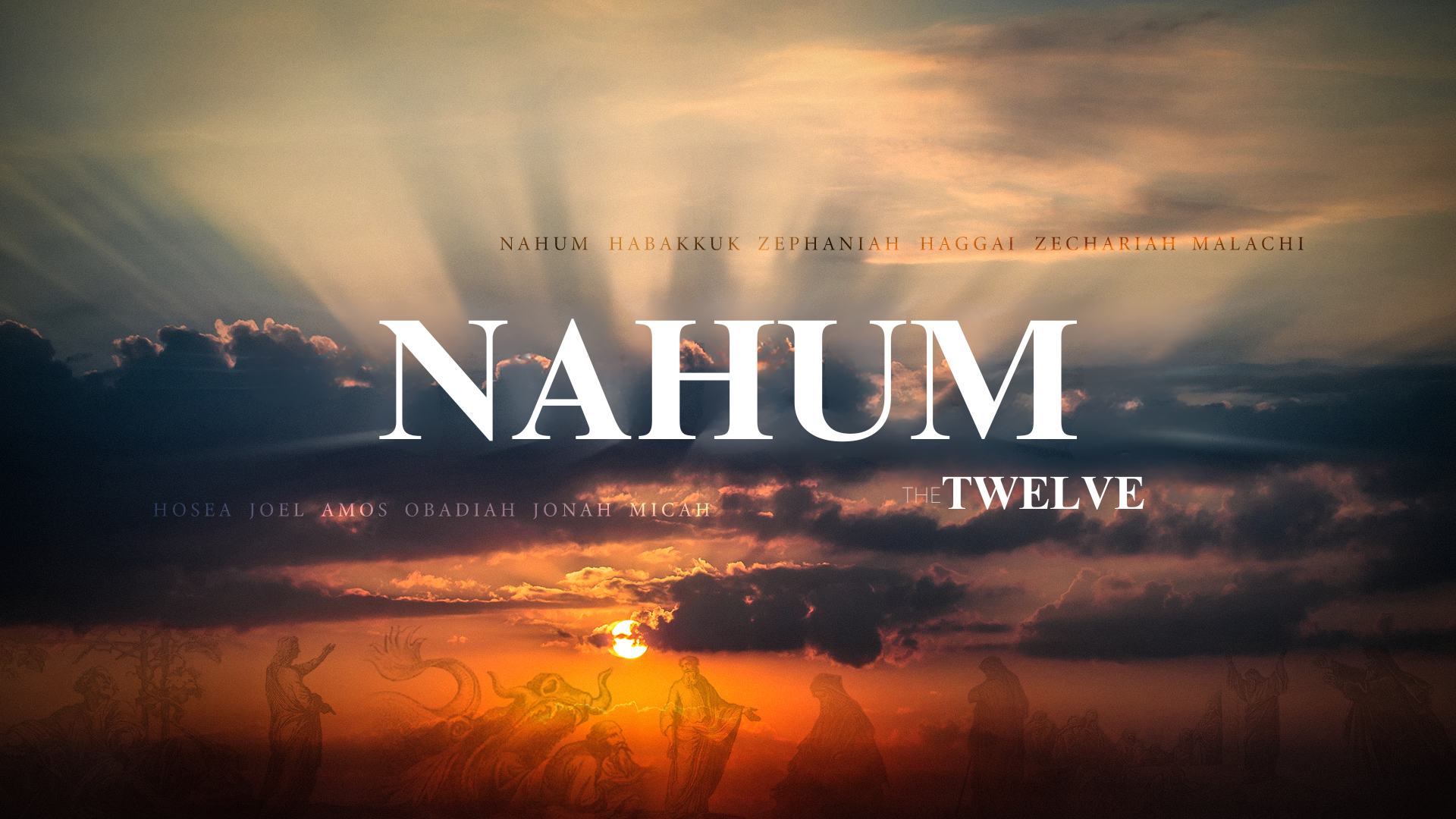MANUSCRIPT
Today we continue our third book in the series “The Twelve”, the book of Hosea...this book follows Jonah and Amos in the chronological order of the prophets to the northern kingdom
Today we move forward into chapter two and chapter three, having looked last week at some background information, including who Hosea was; the religious, political, and social setting of the final years before the fall of the northern kingdom in the middle of the eighth century BC; the challenges we face in understanding this moving yet complex book...again, be aware of the content of this book, parents...today is a reason for my disclaimer...
This morning, we’ll return to the end of chapter one in verses 10 and 11, then press into chapters two and three, which is a remarkably short chapter
You’ll recall how bleak and dark last week was, as God commanded the prophet to find and marry a “wife of whoredom” -- Gomer -- and to have “children of whoredom” -- a son, Jezreel; a daughter, Lo-Ruhamah (No Mercy); and LoAmmi (Not My People)
I said then brighter days were ahead...well, buckle up and get ready for a sudden turn...
10 Yet the number of the children of Israel shall be like the sand of the sea, which cannot be measured or numbered. And in the place where it was said to them, “You are not my people,” it shall be said to them, “Children of the living God.” 11 And the children of Judah and the children of Israel shall be gathered together, and they shall appoint for themselves one head. And they shall go up from the land, for great shall be the day of Jezreel.
1 Say to your brothers, “You are my people,” and to your sisters, “You have received mercy.”
This is just the first of many reversals in this book...even today we’ll see a few...Hosea transitions easily between the two primary messages in the book...that the Lord God will both judge Israel and restore Israel...this might seem very different to western readers like us, since we generally think about the written word in a chronological way...but biblical writers didn’t always take that approach...they will deftly move back and forth between points of emphasis...Psalm 22 is a good example...in it, David shifts between lamentation for his troubled situation and praise to his faithful God...here, Hosea changes perspective from the judgment represented by the names of the children in the first chapter, to the redemption of Israel represented by the reversal of the names of those same children...
Before, Israel was going to be crushed by the Assyrian Empire, Samaria reduced to a pile of rubble, and all but the poorest of the land taken into exile...their military might would be broken in the valley of Jezreel, God would no longer have mercy on them or forgive them for their sin, and worst of all, they would no longer be His covenant people and He would no longer be their covenant God
Now, without even a hint of transition, God promises that they will be “...like the sand of the sea, which cannot be measured or numbered.”...they were “Not My People” a few verses ago, but now they are given a new title: “Children of the living God.” And Hosea speaks to the divided nation -- Israel in the north, Judah in the south -- both fallen into idolatry and sin, both going to suffer in exile -- and he says of them, 11 And the children of Judah and the children of Israel shall be gathered together, and they shall appoint for themselves one head.”
This echoes the prophecy of the valley of the dry bones in Ezekiel 37...which begins with the resurrection of the people of united Israel...verses 11 through 14 say this:
11 Then he said to me, “Son of man, these bones are the whole house of Israel. Behold, they say, ‘Our bones are dried up, and our hope is lost; we are indeed cut off.’ 12 Therefore prophesy, and say to them, Thus says the Lord God: Behold, I will open your graves and raise you from your graves, O my people. And I will bring you into the land of Israel. 13 And you shall know that I am the Lord, when I open your graves, and raise you from your graves, O my people. 14 And I will put my Spirit within you, and you shall live, and I will place you in your own land. Then you shall know that I am the Lord; I have spoken, and I will do it, declares the Lord.”
The Lord God will raise the whole house of Israel from the death of exile and will bring them back into the land of Israel, their own land...and they will be one again...the Lord God continues in verses 15 through 22 to describe the joining of the two nations once again... Ezekiel 37.15-22, 23b, 24a, 25b
15 The word of the Lord came to me: 16 “Son of man, take a stick and write on it, ‘For Judah, and the people of Israel associated with him’; then take another stick and write on it, ‘For Joseph (the stick of Ephraim) and all the house of Israel associated with him.’ 17 And join them one to another into one stick, that they may become one in your hand. 18 And when your people say to you, ‘Will you not tell us what you mean by these?’ 19 say to them, Thus says the Lord God: Behold, I am about to take the stick of Joseph (that is in the hand of Ephraim) and the tribes of Israel associated with him. And I will join with it the stick of Judah, and make them one stick, that they may be one in my hand. 20 When the sticks on which you write are in your hand before their eyes, 21 then say to them, Thus says the Lord God: Behold, I will take the people of Israel from the nations among which they have gone, and will gather them from all around, and bring them to their own land. -- And one king shall be king over them all, and they shall be no longer two nations, and no longer divided into two kingdoms. -- and they shall be my people, and I will be their God. -- 24 “My servant David shall be king over them, and they shall all have one shepherd. -- They and their children and their children's children shall dwell there forever, and David my servant shall be their prince forever.
Yahweh God declares that Israel shall be one nation again, they shall again be in their land, and David shall once again be their king...
Hosea sees the same future as Ezekiel...the ultimate restoration of the people, the land, and the Davidic throne...and in that day, great shall be the day of Jezreel...you’ll recall that Jezreel means “God scatters” -- which is this context means “God sows”... the Children of the Living God will once again live at peace in their land under the kingship of David, reversing the curses represented in chapter one by the names of these three children...God will have mercy and forgive, and He will once again be their God, and Israel will be His people
But now get ready for another important twist in the text...we turn back to the theme of judgment in chapter two verse two...and the focus changes from the children back to their mother, the adulterous wife...but at the same time, the speaker, the husband, also changes from Hosea to the Lord God...the conversation is presented as God speaking to the “children” of their mother, Israel...this passage is from verse 2 through verse 5...let’s look first at just the first half of verse 2
2 “Plead with your mother, plead—
for she is not my wife,
and I am not her husband—
This is the language of the divorce decree given by the Lord God to faithless Israel...but He is asking the children of this marriage to intervene...we know the children of Hosea and Gomer, all three named in chapter 1...but when the picture changes to God and faithless Israel as the adulterous wife, who are the children?
I believe that here, as in much of Amos, the focus and guilt of the most offensive sins falls on the political and religious and economic elite of the nation...the leaders, as opposed to the common people of the northern kingdom...the full force of God’s condemnation in both prophecies falls upon the king, the court, the priests and religious leaders, and the wealthy...the common people, the “children” of this figure, while not sinless, are often seen as the victims of the rich and powerful...in verse 2, God calls upon the people of Israel to find fault with, to contend against, to denounce, their leaders, to listen to the prophetic voice warning of coming judgment, of the annulment of the covenant between the nation and Yahweh God, as one would annul a marriage...for unless they repent, Israel will no longer be wed to their covenant God, and He will no longer be their covenant Husband...that is the only understanding of verse 2 that makes sense of the rest of the passage...let’s examine it...
that she put away her whoring from her face,
and her adultery from between her breasts;
This is no easy task...children correcting their mother, the common folk rising to rebuke their leaders...along with Amos and Hosea, calling them to abandon their physical adultery and spiritual idolatry and return to repentance, righteousness, and restoration to their covenant God...
Next comes the consequences if mother Israel rejects the prophetic message...God says
3 lest I strip her naked
and make her as in the day she was born,
and make her like a wilderness,
and make her like a parched land,
and kill her with thirst.
4 Upon her children also I will have no mercy,
because they are children of whoredom.
5 For their mother has played the whore;
she who conceived them has acted shamefully.
For she said, ‘I will go after my lovers,
who give me my bread and my water,
my wool and my flax, my oil and my drink.’
God will strip her naked as in the day she was born...this was not a widely accepted practice associated with divorce...but nakedness was a common metaphor for suffering God’s judgment, and it was a common practice of conquering nations like Assyria to lead their captives away naked, to emphasize their powerlessness and shame...given this, the reference to nakedness speaks to the experience of conquest and exile...
The land and the people will both suffer as a wilderness, parched and thirsting for water, and unless the leaders lead the nation well and return to God, even her “children” will suffer, as they are swept up in the destruction wrought by the Assyrians...why? Because they are the “children of whoredom,” led into idolatry and sin by their twenty shameful kings in a row, and by priests like Amaziah whom we saw in Amos 7, telling the prophets to leave the country for Israel would not hear the word of the Lord; in the metaphor, those who had conceived them -- the rich and powerful -- had acted shamefully...and as in Amos, the rich wanted the Sabbaths and holy days and festivals to pass so they could resume their deceitful trade, we hear the same thought in a different voice, as mother Israel says,
For she said, ‘I will go after my lovers,
who give me my bread and my water,
my wool and my flax, my oil and my drink.’
Now the vision changes yet again...the merciful covenant God begins to describe how He will draw the nation back to Himself as a faithful Husband calls out to a faithless wife, reaching out in love, but in both tenderness and in discipline
As I prayed and pondered through this passage of Scripture, I was awestruck by both the mercy and the judgment of God...His kindness alongside His severity...as Deuteronomy 32.39 says so beautifully,
“‘See now that I, even I, am he,
and there is no god beside me;
I kill and I make alive;
I wound and I heal;
and there is none that can deliver out of my hand.
He is a good and merciful God, calling the wayward home even through judgment and discipline...listen to these words as they are spoken by a faithful Husband seeking the restoration of a wayward wife...examine the perfect ways of our God...
6 Therefore I will hedge up her way with thorns,
and I will build a wall against her,
so that she cannot find her paths.
7 She shall pursue her lovers
but not overtake them,
and she shall seek them
but shall not find them.
In His mercy, God will take from her the willfulness, the perversity of spirit that prompted her to pursue prostitution...all with a holy purpose in mind...to draw her unto Himself...He will intentionally block the way as she tries to return to her idolatrous adultery...
Then she shall say,
‘I will go and return to my first husband,
for it was better for me then than now.’
8 And she did not know
that it was I who gave her
the grain, the wine, and the oil,
and who lavished on her silver and gold,
which they used for Baal.
Israel had lost sight of the Source of her blessings, her provision, her providence...she had become deaf and blind to the goodness of her covenant God, and instead took those same blessings, and foolishly spent them on idolatrous worship with the false and demonic pagan God of Canaan...so God in His goodness would withhold the blessings...but even in this moment, you hear the mercy of the Lord God...”for she did not know...”
9 Therefore I will take back
my grain in its time,
and my wine in its season,
and I will take away my wool and my flax,
which were to cover her nakedness.
10 Now I will uncover her lewdness
in the sight of her lovers,
and no one shall rescue her out of my hand.
In order to draw idolatrous Israel back, He would deprive her of the blessings of obedience to the covenant while she was in exile...none would rescue her...she would remain there for a long season learning of the kindness and severity of God...
11 And I will put an end to all her mirth,
her feasts, her new moons, her Sabbaths,
and all her appointed feasts.
Those important days that Israel had wrongly dedicated to idolatrous worship, honoring the false gods and golden calves while ignoring and dishonoring her covenant God, would be taken from her...those festivals meant to draw her to the Lord would be lost to her because she had wasted them on Baal worship...and she could not keep them in exile...
12 And I will lay waste her vines and her fig trees,
of which she said,
‘These are my wages,
which my lovers have given me.’
I will make them a forest,
and the beasts of the field shall devour them.
Even the provision of the groves and vineyards and fields which the Lord had blessed would be taken away, they would be lost again to the growth of the forest, because she ascribed those blessings to the Baals, the gods and goddesses of fertility, giving credit to demons for the blessings given her by the gracious hand of her God
13 And I will punish her for the feast days of the Baals
when she burned offerings to them
and adorned herself with her ring and jewelry,
and went after her lovers
and forgot me, declares the Lord.
And for her idol worship and sexual cultic practices and adornment in the name of false gods and pursuing those false gods as if they were desirable lovers, and burning ritual offerings to them, which her covenant Husband forbidden her to do, He would punish her, for her own discipline and eventual restoration...and she would bear her punishment for the worst sin of all: forgetting God...
But now we find another reversal in the text...there will come a day when the restorative judgment, the discipline under which the Lord has held the whole house of Israel, will be complete...on that day, the work of God to bring a nation to Himself, the work of a loving husband who seeks out and redeems an adulterous wife, will be done...and she will turn away from the false gods to whom she played the prostitute, and she will belong, heart and soul and body, to the Lord God, her Husband of the covenant...Israel and Judah will be reunited as prophesied by both Hosea and Ezekiel, with each other and with their God, made one again in their land, and united under one king...God describes that tender and precious moment when she returns to the covenant, to her God as of old...
14 “Therefore, behold, I will allure her,
and bring her into the wilderness,
and speak tenderly to her.
15 And there I will give her her vineyards
and make the Valley of Achor a door of hope.
And there she shall answer as in the days of her youth,
as at the time when she came out of the land of Egypt.
After her discipline is complete, the Lord will allure her...”allure” isn’t a word we use much anymore...it means to attract or to charm...God will draw Israel to Himself through kindness, tenderness, gentleness, and love...this combination of stern discipline and tender compassion is characteristic of the Lord’s ways...He knows us well, and skillfully blends both that which is positive and what we see as negative circumstances to bring us home to Himself...here the touch becomes a gentle touch as He brings her “into the wilderness” -- which has more than one figurative meaning in the Old Testament, but here represents a place of purification and cleansing, even if that cleansing comes through suffering; but the Lord will speak tenderly at the same time...He will restore His provision that Israel has lost
He also makes special mention of a unique place: the valley of Achor, which literally means the valley of trouble...if you recall the story from Joshua 7, Achor was the place where Achan and his family were stoned to death for taking the banned items from the conquered city of Ai; Isaiah also refers to the place as a place of blessing in Isaiah 65.10...
Sharon shall become a pasture for flocks,
and the Valley of Achor a place for herds to lie down,
for my people who have sought me.
Now the Lord says the valley of trouble will be transformed into a door, a portal, of hope
And in that place, Israel will respond to the Lord as they did when they first crossed over the Jordan into the land of promise...as the text says, “as in the days of her youth”
16 “And in that day, declares the Lord, you will call me ‘My Husband,’ and no longer will you call me ‘My Baal.’ 17 For I will remove the names of the Baals from her mouth, and they shall be remembered by name no more. 18 And I will make for them a covenant on that day with the beasts of the field, the birds of the heavens, and the creeping things of the ground. And I will abolish the bow, the sword, and war from the land, and I will make you lie down in safety. 19 And I will betroth you to me forever. I will betroth you to me in righteousness and in justice, in steadfast love and in mercy. 20 I will betroth you to me in faithfulness. And you shall know the Lord.
Now the covenant God of Israel even changes their vocabulary...”husband” is the word “eesh” -- “Ba - al” is translated as “master” -- “Ba - al” will be used no more in Israel...they will live in peace and safety, with the natural world and each other...and they will lie down in safety as the Good Shepherd’s flock does in Psalm 22 -- “He makes me lie down in grass pastures”...”betroth” means to become engaged to be married...and this betrothal will be in righteousness, in justice, in covenant love, in mercy, and in faithfulness...it will last forever...and the people of the Lord will know Him, in His fullness and love...what a complete picture of redemption
“And in that day I will answer, declares the Lord,
I will answer the heavens,
and they shall answer the earth,
22 and the earth shall answer the grain, the wine, and the oil,
and they shall answer Jezreel,
23 and I will sow her for myself in the land.
And I will have mercy on No Mercy,
and I will say to Not My People, ‘You are my people’;
and he shall say, ‘You are my God.’”
Now the Lord draws this redemption scene to it’s conclusion as creation rejoices as the people of God are restored to covenant fellowship with their Husband God...and the meaning of “Jezreel” turns from destruction to renewal, from No Mercy to Mercy, from Not My People to You Are My People...and Israel will say once again, as in the days of old, “You are my God”
Now the scene returns to Hosea and Gomer at the beginning of chapter 3...
3 And the Lord said to me, “Go again, love a woman who is loved by another man and is an adulteress, even as the Lord loves the children of Israel, though they turn to other gods and love cakes of raisins.” 2 So I bought her for fifteen shekels of silver and a homer and a lethech of barley. 3 And I said to her, “You must dwell as mine for many days. You shall not play the whore, or belong to another man; so will I also be to you (then I will be yours).” 4 For the children of Israel shall dwell many days without king or prince, without sacrifice or pillar, without ephod or household gods. 5 Afterward the children of Israel shall return and seek the Lord their God, and David their king, and they shall come in fear to the Lord and to his goodness in the latter days.
By the word of the Lord, now speaking a second time, Hosea acts in love and kindness, showing forth this future redemption of Israel in real life...Gomer had returned to a life of prostitution, if in fact she ever fully left it...and now Hosea returns with a heavy but hopeful heart to the slave market, and buys his own wife back, who was once called a “wife of whoredom” but is now called an “adulteress” since she is married...
Very likely she had fallen into the role of temple prostitute and from there into slavery...Hosea buys her for 15 pieces of silver and about 300 hundred liters of barley...Hosea takes his wife back, the mother of his children...and shows all of Israel what true covenant love looks like...seeking her out among the crowd, he calls her to faithfulness...and as Gomer would live in Hosea’s home “for many days” before fully resuming her role as wife, so also would Israel remain in exile for “many days” -- out of their blessing, and out of their land...but afterward, they would return...to the Lord their God, to David their king, in fear and awe, to His goodness
What a beautiful picture of the relentless, redeeming love of God...though He judges and disciplines His people, He never abandons us...let me call your attention to just a few lessons we can learn from this most unusual family...
It’s better to avoid sin in the first place than have to be disciplined by the Lord. It would have been better for Israel, and for us, to pursue holiness before discipline comes.
But if He disciplines us, we know it is for our good and His glory. For believers Romans 8.28 is still true: And we know that for those who love God all things work together for good, for those who are called according to his purpose.
God doesn’t tolerate idolatry...He insists on faithfulness from His people. Hebrews 10.23 says Let us hold fast the confession of our hope without wavering, for he who promised is faithful. We are we to be faithful in our walk with Christ? Because He is faithful.
Let us walk in grace with each other, as our Father is gracious toward us.

Taught by Mike Morris
Associate Pastor of Verse By Verse Fellowship
The Twelve Series
